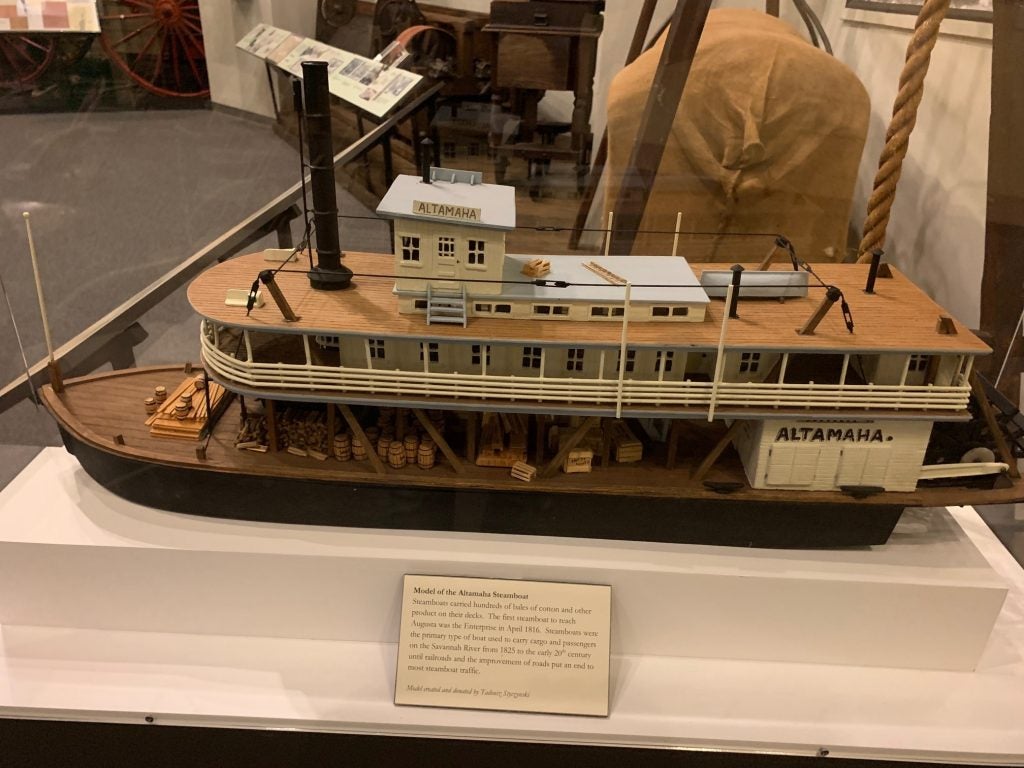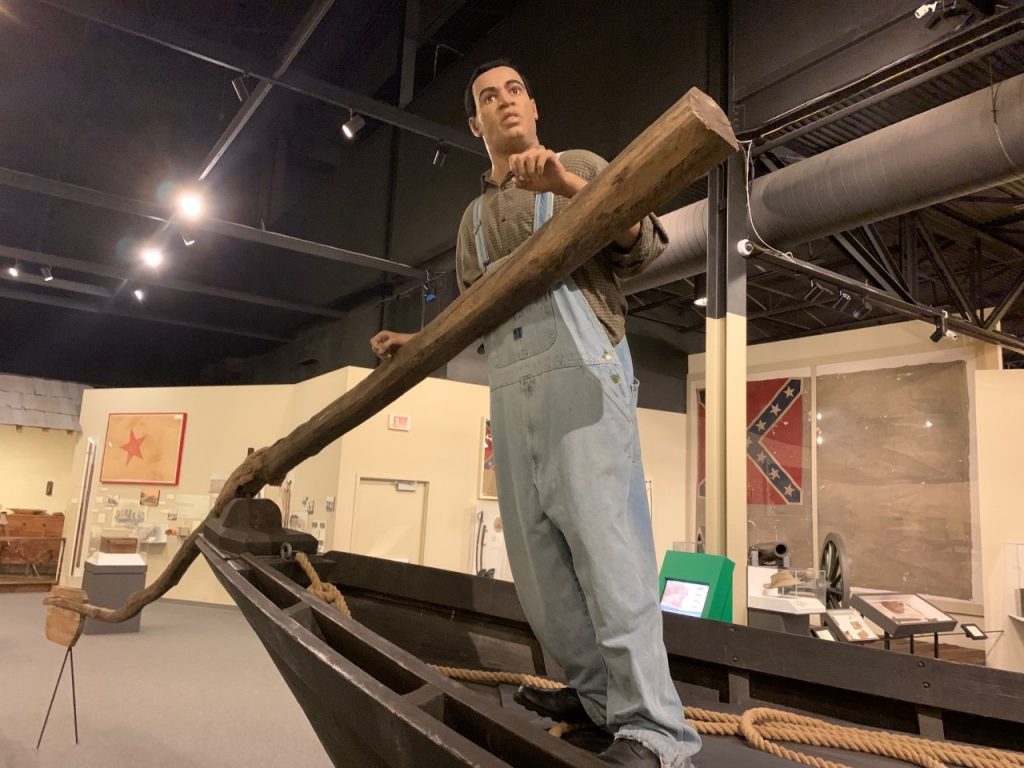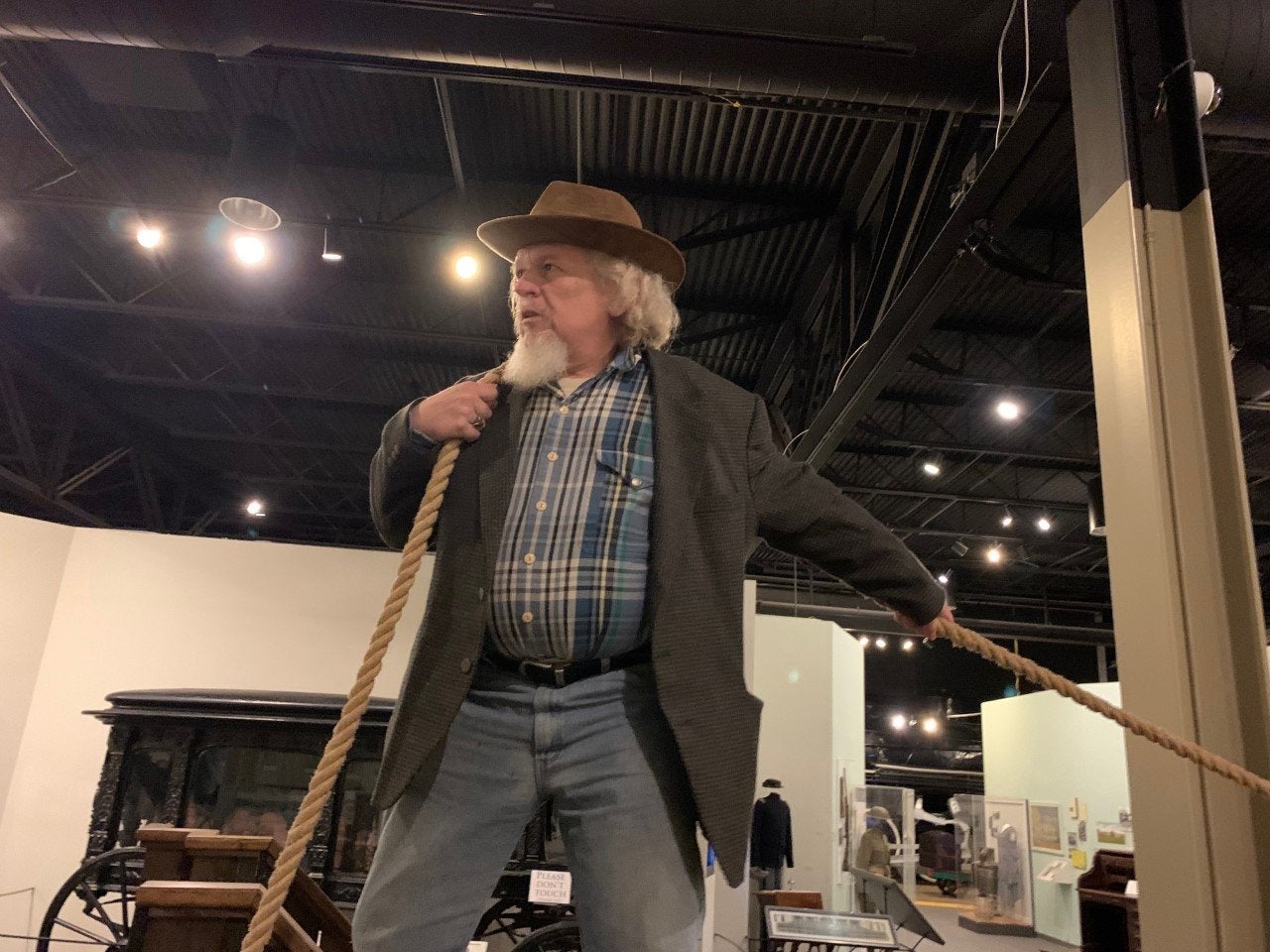The Augusta Museum of History is continuing a series that reenacts many of their popular exhibits. On March 9, local actor Joe Zuchowski gave a portrayal of what it was like to be a pilot on a Petersburg boat.
Before the invention of the steam engine, waterways served as commercial highways across the United States with everything from sailing craft to crude barges out on the water. Many times, vessels were designed specifically for the rivers they traveled.
Such was the case of the Petersburg boat, which was designed to be long and thin with a shallow draft to allow it to navigate in the more shallow portions of the Savannah River.
According to Zuchowski, the oak-hulled boats were built in the city of Petersburg which was about 75 river miles west of Augusta. Petersburg was once the third largest city in Georgia in the early 19th century; however, there is little of the town left today as it now rests beneath the waters of Lake Thurmond.
While the boats were roughly 60 feet long and eight feet wide, the boats could carry as much as 15 tons of cotton or tobacco. The boats themselves weighed up to 10 tons when empty of cargo.

Once loaded from farms upriver from Augusta, the boats would follow the current, and the six- to eight-man crew would use poles to keep the boats away from the banks, sandbars and other boats.
“In those days, the pilot would have to literally hang out over the prow with a lantern to navigate in the dark,” Zuchowski said.
Zuchowski says that getting the fully laden boats downriver was relatively easy, but getting the empty boats back up river to be reloaded was the real challenge.
“They did rent mules from local farmers, but if mules weren’t available, they had to use ropes to haul the boats against the current,” Zuchowski said.
In the years before the Augusta Canal was built and manufacturing came to Augusta, the raw cotton was collected in Augusta and then sent to New England to be milled and processed. Tobacco, on the other hand, was cured at several large warehouses in what is now the Harrisburg area.

tiller at the stern. Photo by Scott Hudson
Even after the invention of the steam engine, which not only led to trains but the classic steam boats as well, the Petersburg boats continued to be in use.
The diversion dam that created the Augusta Canal prevented up-river traffic, but the boats were a normal sight on the Augusta Canal right up to the turn of the 20th century, according to Zuchowski.
The Augusta Museum of History’s next “voices from the past” presentation will be on April 16 and will feature the portrayal of a civil rights activist.
Scott Hudson is the senior reporter for The Augusta Press. Reach him at scott@theaugustapress.com










